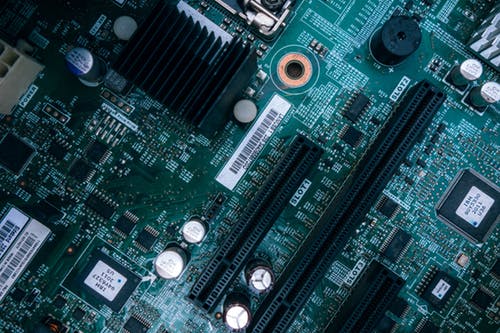The automotive industry has always been a field that sees the technology and industrial sectors develop innovative solutions. The automotive industry has long been a defender of technologies like artificial intelligence (AI) and big data and analytics. The industry has experienced several extraordinary fluctuations and ups and downs over the past ten years.
But, due to the Covid-19 virus, 2020 was a slow year with fewer people buying cars. However, the market is beginning to rebound and gives everyone reasons to believe in the future. They’ve become more efficient and safer, and capable of achieving faster speeds. In the end, technology in cars can be beneficial for consumers.
Innovative Ideas in the Automobile Industry
Technology is changing and altering our lifestyle and every other industry that we’ve ever made. The automotive industry isn’t most hesitant to embrace new technologies, and it’s among the fastest. Here are some innovations that the auto industry could introduce in the coming years.
1. Autonomous AI-powered Vehicle
In the automotive industry, AI-powered autonomous vehicles are leading the way. Autonomous vehicles that use artificial intelligence provide intelligent choices for travel. They are self-driving and rely on sensors and software to operate and navigate them. Autonomous vehicles aim to reduce the requirement for human drivers and simplify daily travel.
The number of people willing to trust or use autonomous vehicles is growing. The pandemic, however, caused a significant setback, slowing the development of autonomous cars for a time. With the autonomous car industry estimated to be worth billions of dollars, funds are likely to continue to enter the market, mainly as new applications are being considered. If you want to know more about the advancement of your car features, you can visit websites like www.aeicm.com and discover the evolution of car technology.
2. E-Commerce and Marketing
In the coronavirus outbreak, the idea of selling cars online came into play. While in-person visits to dealerships and test driving were previously a requirement of buying a car, the process was hindered by the restrictions on lockdowns which restricted it to the internet medium. Some are not happy with the change; however, many people are.
Contrary to the dealer’s advice, buyers of cars can look at other automobile models. Dealerships today are trying to make online purchases more common through online tours and secure checkouts options, online banking, and return policy.
3. Automobile Electrification
The price increase for fossil fuels and the environmental harm caused by their use has led to the focus of the automotive industry on electric vehicles (EVs). Automobiles contribute 15percent of the greenhouse gas emissions and are a significant contributor to the depletion of fossil fuel reserves and posing the possibility of irreparable environmental damage. However, electric vehicles address the issue by maximizing energy efficiency and reducing gasoline use. Various electronic manufacturing companies are focused on technological advancements to bring renewable energy to their consumers. It is for the betterment of the consumer, product, and, most importantly, the environment.
Electric vehicles must deal with the high cost of fuel, defective batteries, inadequate charging infrastructure, fleet electrification, renewable energy-based charging grids to increase acceptance and adoption.
4. Blockchain System
Blockchain is often compared to the second generation of the internet. It can alter the processes of an organization. It involves the exchange of vehicle information through a secure network to facilitate connectivity and shared mobility services like ride-hailing, delivery services, and urban transportation. Blockchain is used for verification to improve supply chain efficiency and back-office efficiency.
It could improve the accuracy of information about vehicles and enhance statistics across the industry through incentives and management. Blockchain’s impact on the automotive industry is anticipated to increase in the coming year. Blockchain system also affects sectors focused on industrial equipment manufacturing. Several companies now innovate and make it a manufactured reality.
5. Three-Dimensional Printing
New cars and parts for replacement are always in high demand in the auto industry. The demand for more unique and more efficient vehicles is growing, and so is the need to enhance manufacturing processes and streamline logistics and supply chains. 3D printing can be a technology that can help address these needs. 3D printing in the automotive industry is being studied across all sectors.




